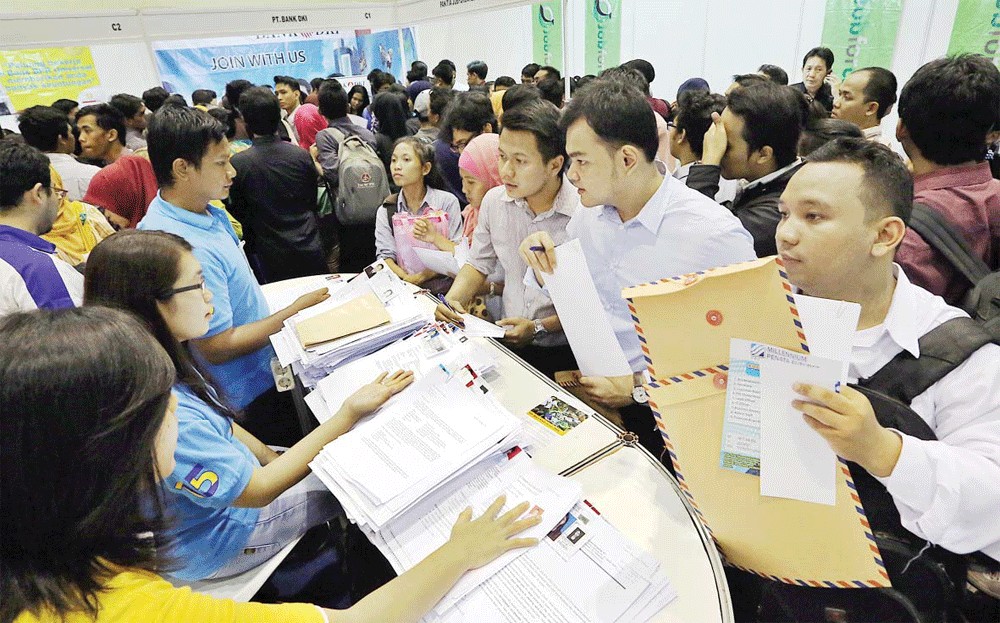Focusing on human development
We know young people are essential to economic development and growth, but if they are unemployed due to lack of marketable skills or trade, they contribute nothing to growth and instead add to the dependency ratio
Change Size
 Economic Challenges: Unemployed youngsters throng a recent job fair in Jakarta. (The Jakarta Post/Ricky Yudhistira)
Economic Challenges: Unemployed youngsters throng a recent job fair in Jakarta. (The Jakarta Post/Ricky Yudhistira)
T
he government regulation that grants double income tax deductions for companies that conduct vocational training and apprenticeship programs for unemployed graduates or job seekers and triple tax deductions for expenditures on research and development is a policy measure focused on human resource development.
The policy, launched early this week to address the high youth unemployment rate in the country and the acute lack of skilled labor, is also a response to the criticism alleging that President Joko “Jokowi” Widodo is excessively obsessed with physical infrastructure at the expense of human resource development. Youth unemployment in Indonesia, last estimated at over 18 percent, is alarming indeed because more than 65 million of the country’s 260 million population are aged between 20 and 35, almost 50 percent of the working-age population.
We know young people are essential to economic development and growth, but if they are unemployed due to lack of marketable skills or trade, they contribute nothing to growth and instead add to the dependency ratio. In fact, one of the biggest barriers to new investment in the manufacturing sector has been the severe shortage of skilled or trained labor and the excessively rigid labor regulations on severance allowances.
Finance Minister Sri Mulyani Indrawati promised to issue next week technical directives for companies on how to benefit from the tax incentives. A note of caution, though: The technical and bureaucratic guidelines for administering the tax deduction, while needed to prevent misuse, should be made as simple as possible.
Experiences so far have shown that the government tends to protect the granting of incentives with such excessively arduous procedures, in a bid to prevent misuse, that many of the intended beneficiaries are discouraged from making use of them because of the punitively high administration costs.
The government itself has magnanimously admitted that inadequate institutional capacity is one of the main problems faced by policy implementation. The government, for example, has provided many incentives to facilitate export, but the bureaucratic processing of documents is so long, often twice as slow as in other ASEAN countries, that the incentives become ineffective for strengthening our export competitiveness.
National Development Planning Minister Bambang Brodjonegoro noted early this week that the main challenges to increase economic growth higher than 5 percent were regulatory barriers and poor institutional capacity.
Another handicap that may make the generous tax deduction less effective in achieving its objective is the overly rigid labor rules that have made the labor market inefficient.
Therefore, removing the overly strict labor regulations that make severance payments too onerous and establishing a minimum wage that is not too high would help encourage companies to hire workers on a permanent basis, instead of under contractual arrangements.









